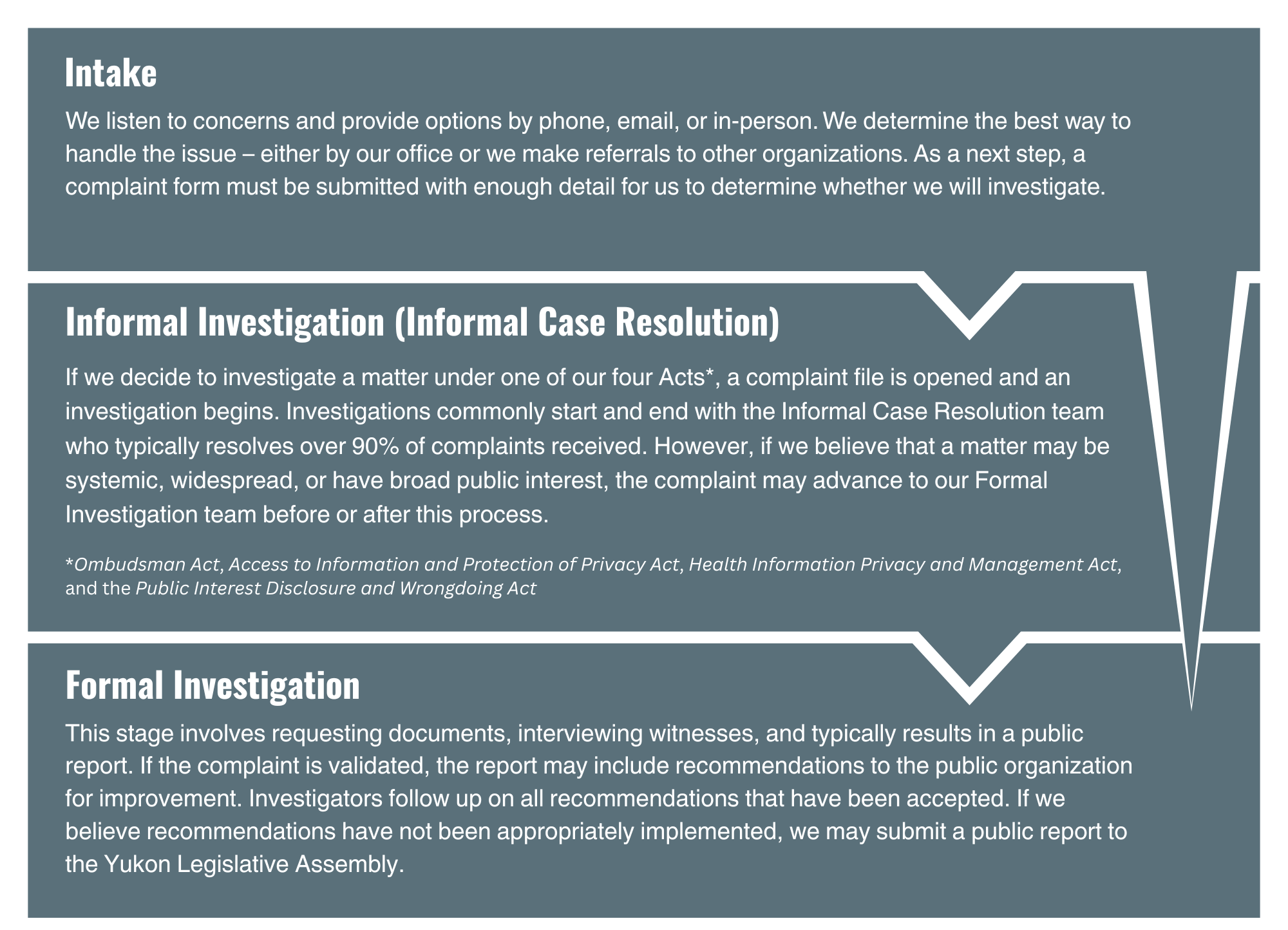There are rules in the PIDWA about who can disclose, what may be disclosed and to whom. Failure to follow these rules may result in a loss of reprisal protection. Therefore, it is recommended that the employee seek advice prior to making a disclosure.
An employee may make a disclosure even if another Act prohibits or restricts disclosure of the information. If in doubt, please contact us for clarification.
An employee who commits a wrongdoing is subject to appropriate disciplinary action, which may include termination of employment.
An employee who seeks advice about making a disclosure, made a disclosure, cooperated in an investigation, or declined to participate in a wrongdoing must not face reprisal from their employer.
While efforts are made to ensure confidentiality, it is not always possible to protect the identity of the discloser.
If the employer suspects or knows that they have a real or perceived or real conflict of interest with the employee who made a disclosure, they must immediately stop the process, and advise both the employee and their chief executive to that effect and exclude themselves from any further involvement.
We resolve complaints quickly and efficiently through various processes and procedures. The following process is one we use for all three mandates (Ombudsman, Information and Privacy Commissioner, and Public Interest Disclosure Commissioner). Timely resolution benefits us all.

When a disclosure is made to the Public Interest Disclosure Commissioner (PIDC), the PIDC must notify:
- the chief executive of the affected public entity,
- and if the disclosure alleges a wrongdoing by the chief executive, the responsible Minister, and
- if the public entity is a corporation or board, the chair of the governing board of the public entity.
Investigating other wrongdoings
If, during a disclosure investigation, the PIDC has reason to believe that another wrongdoing has been committed, the PIDC may then investigate that wrongdoing.
Alternative resolution
If an employee makes a disclosure to the PIDC, the PIDC may take any steps they consider appropriate to help resolve the matter within the public entity without having to conduct a full investigation.
Investigation report
Upon completing a disclosure investigation, the PIDC must prepare a report containing their findings, the reasons for the findings, and any recommendations about the disclosure and the wrongdoing. The PIDC must provide a copy of the report to:
- the chief executive of the affected public entity, and
- any individuals who were notified of the disclosure.
The PIDC must notify the employee who made the disclosure that a report has been prepared and provide the employee with any information pertaining to the report that the PIDC considers appropriate in the circumstances.
Notification of proposed steps
When the PIDC makes recommendations, they may request that the public entity notifies the PIDC of the steps they have taken, or propose to take, to address the recommendations.
If the PIDC believes that the public entity has not appropriately followed up on the recommendations, or did not co-operate in the investigation, the PIDC may make a report on the matter to:
- the responsible Minister, and
- if the public entity is a corporation or a board, the chair of the governing body of the public entity.

